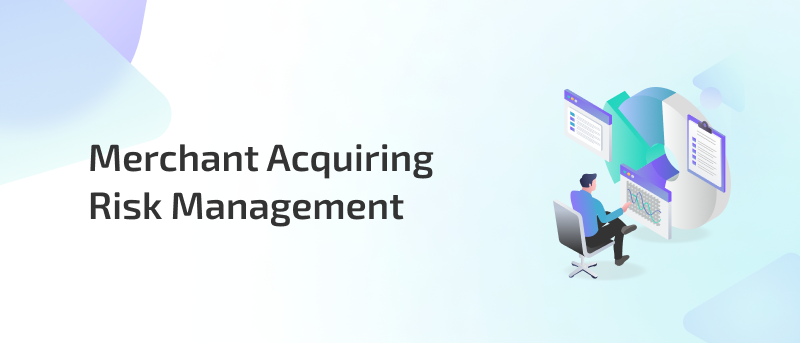.webp)
Published on
June 3, 2025
Real Estate Fraud Prevention: A Practical Guide for Financial Institutions
In this story

Accelerate AML Compliance: Meet Regulatory Demands with 80% Less Setup Time
.svg)
.svg)
If you ask any well-off person about profitable industries, real estate must be one of them, as it is one of the biggest and most profitable industries in the world! Saying so also means that it is an industry that attracts scammers, and not only that but also it is a major target for some fraudsters.
Property fraud affects not only homebuyers, renters, and real estate agencies but also banks! So, if you work at a financial institution, read below to learn more about the best practices for real estate fraud prevention.
What is Fraud in Real Estate?
In any type of fraud, including fraud in real estate, scammers use deceptive methods to gain money. Real estate fraud occurs when an entity deceives another entity into property deals where they often do so by forging legal documents. Within the bank landscape, real estate fraud usually involves property or mortgage transactions.
Read more: Anti-Money Laundering (AML) Checks for Estate Agents
Comply quickly with local/global regulations with 80% less setup time
.svg)
.svg)
8 Common Types of Real Estate Fraud
In a previous article, we discussed the Top 11 Fraud Trends & How to Prevent Them, and some of these trends are, in fact, common types of real estate fraud.
1. Mortgage Fraud
Mortgage fraud is closely connected to loan fraud when someone lies to get a loan approved. There are different ways in which people deceive a financial institution into getting a mortgage. For example, they could use a synthetic identity in their application or falsify legal documents to influence their credit score, which increases their chances of getting the loan or application approved.
Banks need to verify the submitted documents, or they will be victims of one of the most popular fraud types: mortgage fraud.
2. Title Fraud (Deed Fraud)
Some fraudsters manage to forge a deed by claiming to be the owner without the true owner's knowledge or consent, and this is what we call Title Fraud. This might be one of the most dangerous types of real estate fraud because it can go unnoticed until it's too late. That's why it is recommended for banks and other financial institutions to verify ownership records and suggest title insurance to their clients to avoid these problems.
3. Foreclosure Rescue Scams
Sometimes, homeowners encounter tough financial situations that could lead them to losing their homes, which is where fraudsters seize the opportunity and manipulate victims of real estate fraud by giving fake promises. This is where banks need to ensure homeowners understand the real help available to them to avoid falling for these types of property frauds.
4. Home Equity Theft
When someone gets a mortgage to buy a house, as they pay off their mortgage, the home's value goes up, and thus, their equity grows. So home equity is the part of the home that the person truly owns plus the value left after they take out what they still owe on their mortgage. People can use this equity to get money on a loan or a credit line.
In this scenario, criminals find a way to take out equity, which is the money you, as the homebuyer/owner, have built up in your home. This means that it is the bank's responsibility to carefully track unusual filings or loan requests that involve home equity.
5. Investment Scams
Some real estate frauds are just flat-out Ponzi schemes or fake investment deals. Fraudsters tell investors they'll make huge returns on properties that either don't exist or aren't worth anything. Banks should use due diligence, running background checks on these types of investments and the people behind them.
6. Straw Buyer Schemes
In a straw buyer scam, someone else is used to buy the property for the real fraudster, often without knowing they're part of a scheme. This is common in mortgage fraud, and banks need to be alert to suspicious buyer profiles, like those who suddenly have way more money than they can explain.
7. Wire Transfer Fraud
With most real estate deals happening online, wire transfer fraud is skyrocketing. Criminals use phishing emails to trick buyers and sellers into sending money to the wrong account. Banks should secure their wire transfer systems and educate their clients to make sure the money goes where it's supposed to.
8. Accommodation and Listings Fraud
Accommodation fraud happens when a buyer lies about living in a property to get better loan terms. Listings fraud, meanwhile, is when a scammer creates fake property listings or misrepresents a home to trick buyers into paying deposits. Banks should be cautious when looking at borrower profiles and property listings to spot these lies early.
Real Estate Fraud and AML: How They Connect
Real estate fraud is a huge risk for banks, not just because of the money at stake, but because of the connections to money laundering. Criminals love using real estate to "clean" their illegal earnings. They buy, sell, and renovate properties to make their dirty money look legit.
For financial institutions, it's key to apply strong AML practices, especially when dealing with real estate. This means knowing your customers, keeping a close eye on big transactions, and staying up to date with laws and rules around money laundering.
Key AML Practices in Real Estate
1. Enhanced Due Diligence (EDD)
For higher-risk real estate deals—like ones involving foreign buyers or politically connected people, financial institutions need to confirm where the money is coming from and who really owns the property.
2. Know Your Customer (KYC)
KYC is one of the most important tools for catching fraud. It involves understanding your customer's profile and making sure everything they tell you check out. Strange activities, like flipping properties too quickly or transferring money from off-shore accounts, should raise red flags.
3. Transaction Monitoring
Keeping an eye on transactions in real-time can help spot fraud early. Patterns like repeated wire transfers, inconsistent home values, or quick loan payoffs should be reviewed carefully by the AML team.
How to Avoid Real Estate Scams
To keep your institution and clients safe, it's critical to have layers of protection in place. Here are some ways to prevent real estate fraud:
1. Strengthen Your Internal Controls
Make sure your team has strong, clear policies for handling real estate transactions. Everyone in the institution should be trained to spot red flags in property deals.
2. Use AI and Technology
Advanced technology like AI can help detect fraud patterns much faster than humans alone. Banks should invest in systems that can flag suspicious transactions and strange property values and even detect fake documents.
3. Double-Check Title and Ownership Documents
Verifying property ownership is a key step in fighting real estate fraud. Use automated systems, blockchain technology, or work closely with title insurance companies to ensure the documents are real.
4. Secure Your Wire Transfers
Many real estate frauds happen when wire transfers go wrong. Make sure your systems use multi-factor authentication, encrypted emails, and other tools to protect both your clients and their money.
How to Report Real Estate Scams?
If you suspect fraud, it's essential to report it quickly. Financial institutions are required to submit suspicious activity reports (SARs) to agencies like FinCEN (in the U.S.) or similar organizations globally. International deals can make things more complicated, so working with regulators and law enforcement is crucial.
12 Best Practices for Real Estate Fraud Prevention
Banks and financial institutions can significantly reduce their exposure to real estate fraud by implementing the following real estate fraud prevention strategies and best practices.
- Double-check Borrower Information: Make sure the person asking for the loan is telling the truth about their job, income, and who they are.
- Look at Property Values: Work with trusted appraisers to make sure the home's price is real and not pumped up.
- Review Credit Reports: Look closely at the person's credit history for anything weird, like too many recent loan requests.
- Use AI and Tech: Use advanced tools like artificial intelligence (AI) to spot strange things in loan applications, like quickly changing home prices or fast ownership changes.
- Track Money Movements: Keep an eye on how money is moving in and out, looking for anything that seems off.
- Get a Second Opinion: Always hire outside appraisers to avoid any funny business between buyers and appraisers. Do random checks of loan files to make sure everything looks good and no steps are skipped.
- Teach Employees to Spot Fraud: Help your team learn about different tricks and scams, like fake income reports or people stealing house titles.
- Look for Warning Signs: Train staff to notice red flags, like missing papers or buyers who seem in a rush.
- Audit Regularly: Do regular checks on your system to make sure everything is following the rules.
- Check Titles: Always confirm that the property titles are clear of any problems or fake transfers before giving out a loan.
- Teach Borrowers: Give your customers simple tips on how to avoid scams, like fake foreclosure help or too-good-to-be-true offers.
- Offer Help: Provide resources so borrowers can check the status of their title or mortgage anytime.
Real Estate Fraud Prevention with FOCAL Platform
FOCAL helps prevent real estate fraud by using advanced technology to catch potential issues early on. It integrates smoothly with a bank's systems to verify borrower details, track property ownership, and ensure appraisals are accurate.
By identifying red flags like rapid property transfers, inflated values, or missing documents, FOCAL alerts the bank before any fraud can take place. Automated processes also minimize human error and ensure compliance with regulations, making the fraud prevention process both more efficient and reliable.
Conclusion
Real estate fraud will keep evolving as criminals get smarter but on the other hand technology enables banks and financial institutions to stay ahead and improve internal controls. AI, machine learning, and blockchain are playing a huge role in real estate fraud prevention.
FAQs
Q1. What is accommodation fraud?
This happens when a buyer lies about living in the property they're buying just to get better loan terms when they actually plan to rent it out or sell it quickly.
Q2. What is listing fraud?
Listings fraud is when someone creates fake real estate listings to trick buyers into paying deposits for homes that either don't exist or aren't what they're advertised to be.
Q3. How can I tell if I’m a victim of real estate fraud?
You might notice unusual activity, like unfamiliar loans on your credit report, changes in your property title without your knowledge, or receiving foreclosure notices even if your payments are current. Unfamiliar charges or fees can also be a red flag.
Streamline Compliance: Achieve 80% Faster Setup for Fraud Prevention
.svg)
.svg)

How Aseel reduced onboarding time by more than 87% using FOCAL
Learn how FOCAL empowered Aseel to achieve new milestones.
.svg)
.svg)
Mastering Fraud Prevention: A Comprehensive Guide for KSA and MENA Businesses
51% of organizations fell victim to fraud in the last two years, don't be caught off guard, act proactively.
.svg)
.svg)
Featured blog posts
.svg)
AI-Driven Precision in Fraud Risk and AML Compliance
.svg)
.svg)

.svg)
.png)






.webp)




.svg)

_FastestImplementation_Small-Business_GoLiveTime.png)

_HighPerformer_Small-Business_HighPerformer.png)
_Leader_Leader.png)



%20(1).webp)